Arts
Examining the role of The Arts as a catalyst for healing, transformation and action
Introduction
The practice of Art—in its infinite forms, functions and implications—is the most accessible and universal way of constructing meaning out of the world we inhabit.
Our Philosophy: The Arts are not just for experts. They are not solely for the enjoyment of the elite. They are not a superfluous extravagance. The Arts are for us all, expert and novice alike. They are not just an end in and of themselves, but a means. They shape, and are shaped by the world we inhabit.
Students in the Arts Scholars program gain a deeper understanding of the impact of art as a means to explore society and culture against the backdrop of our individual differences and shared experiences.
What you can expect: No matter your major, area of artistic interest, or skill level, as a member of our community, you will be challenged to strengthen your personal artistic skill set, experiment with new and different art forms, and gain a deeper understanding of the value of the arts in our personal and collective lives. We will investigate the power of the arts to:
- Communicate difficult concepts
- Advocate for social change
- Investigate the human experience
- Explore our own identities
- Develop our capacities as creative problem solvers and critical thinkers
- Reinforce, but also upend, existing systems of inequality and oppression
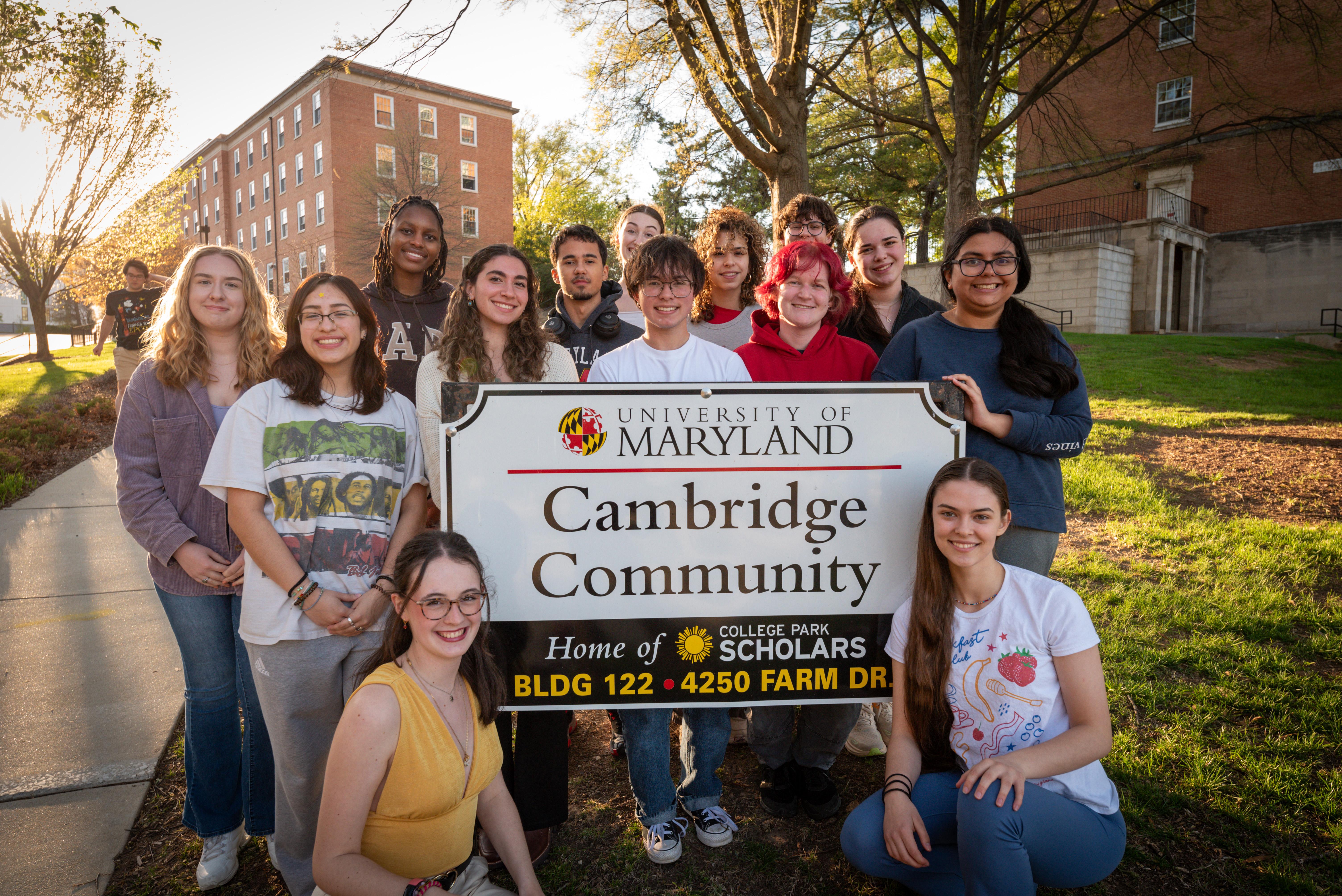
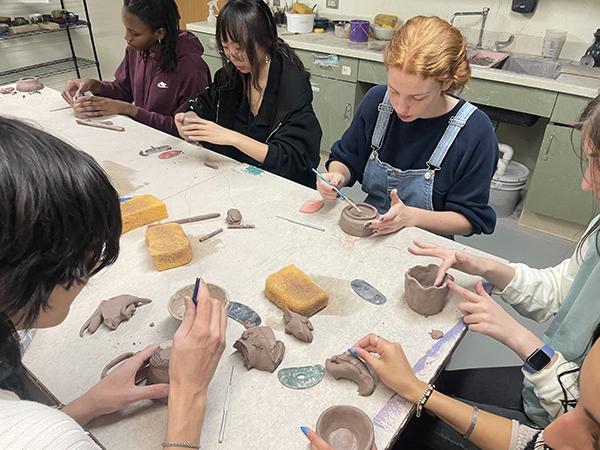
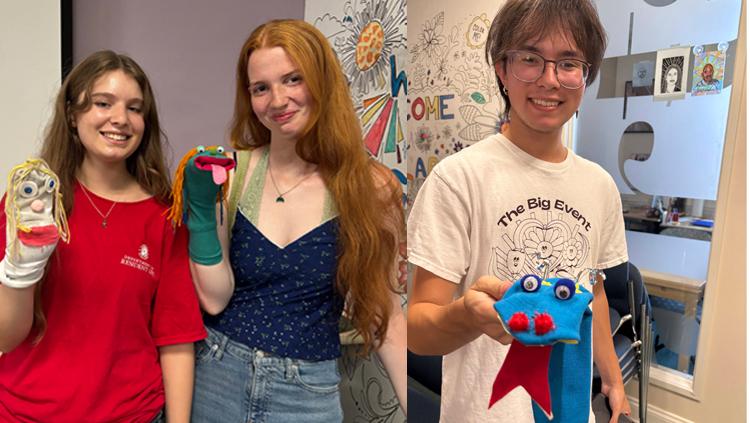
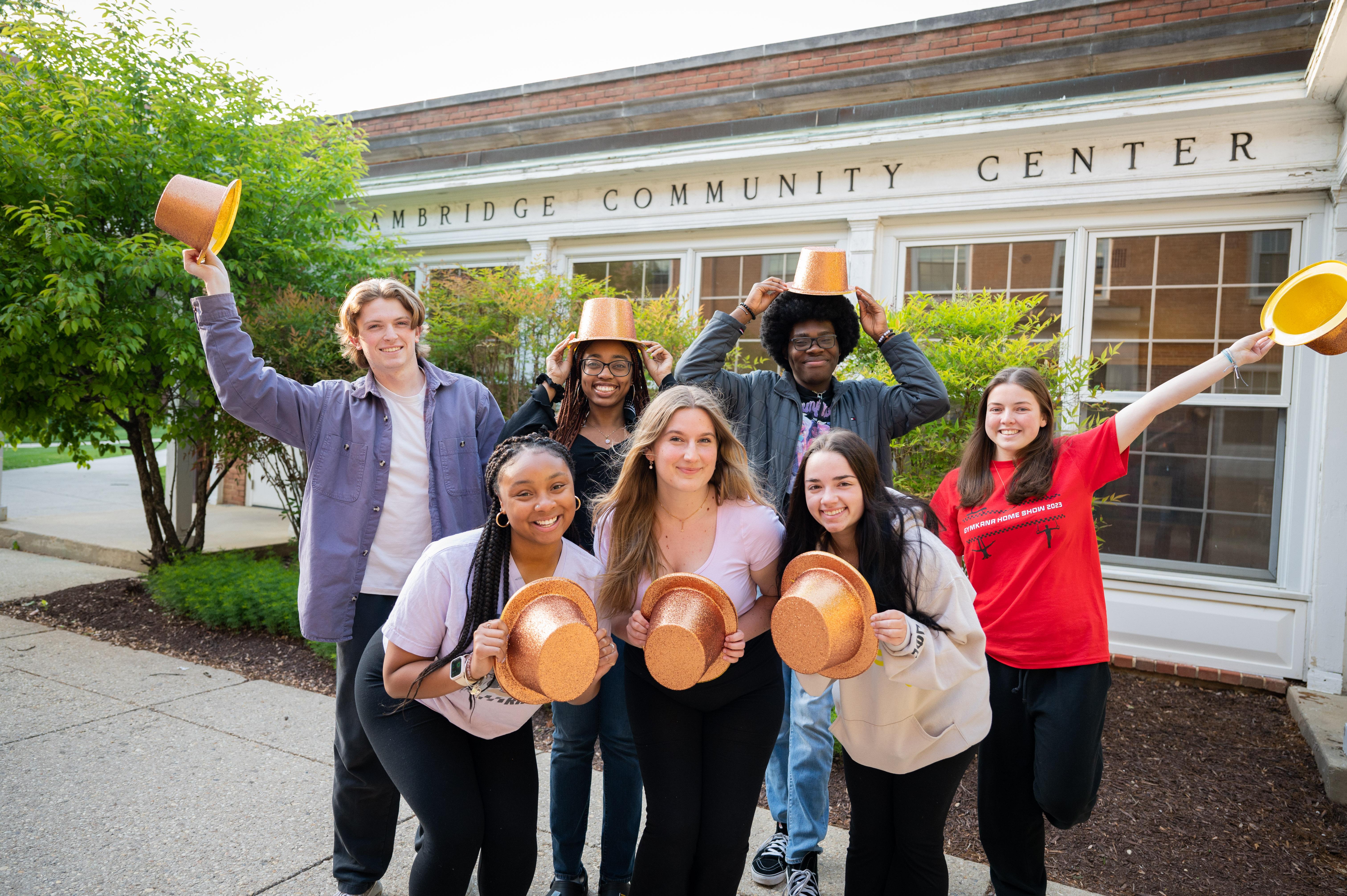
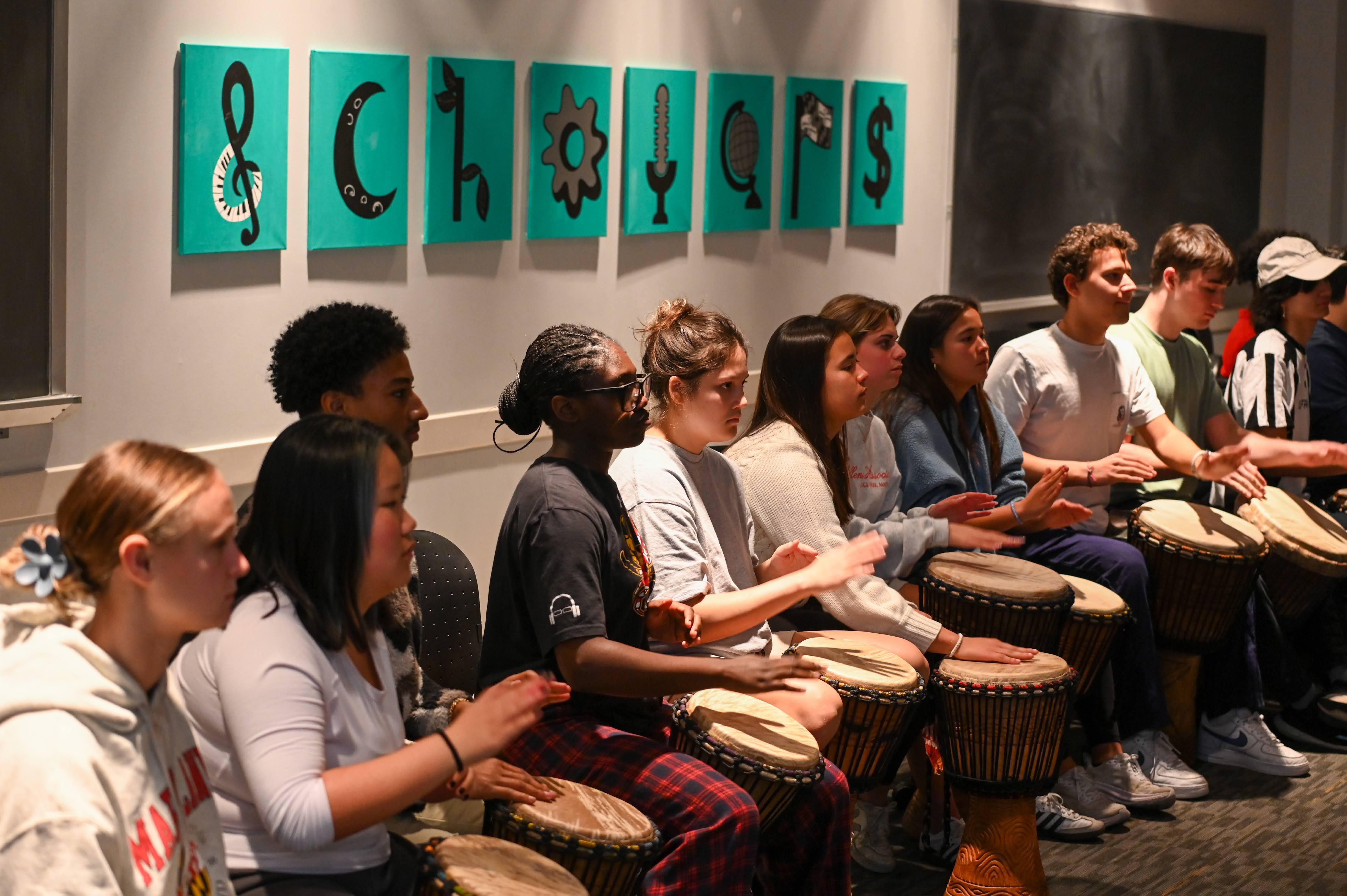
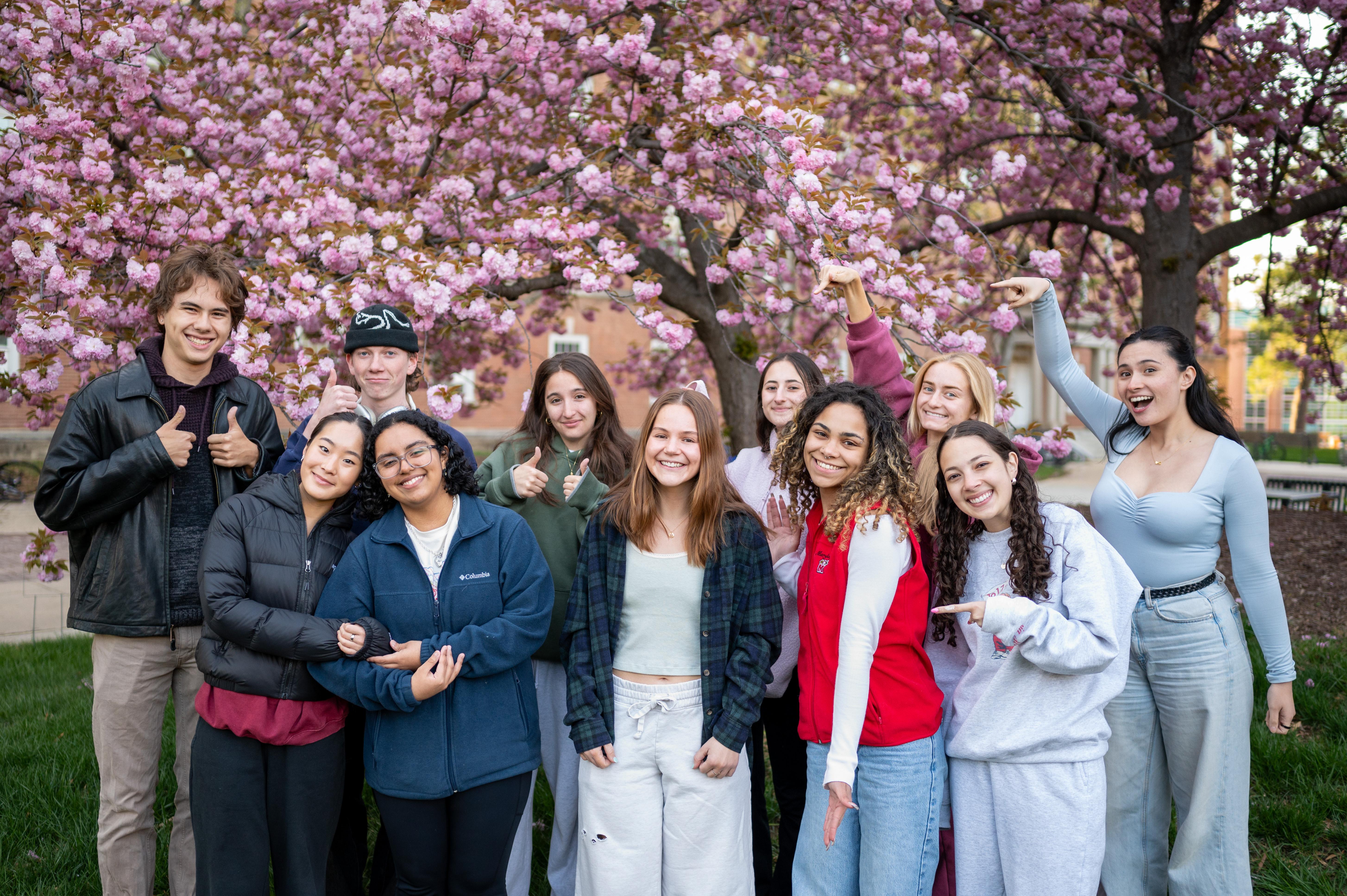
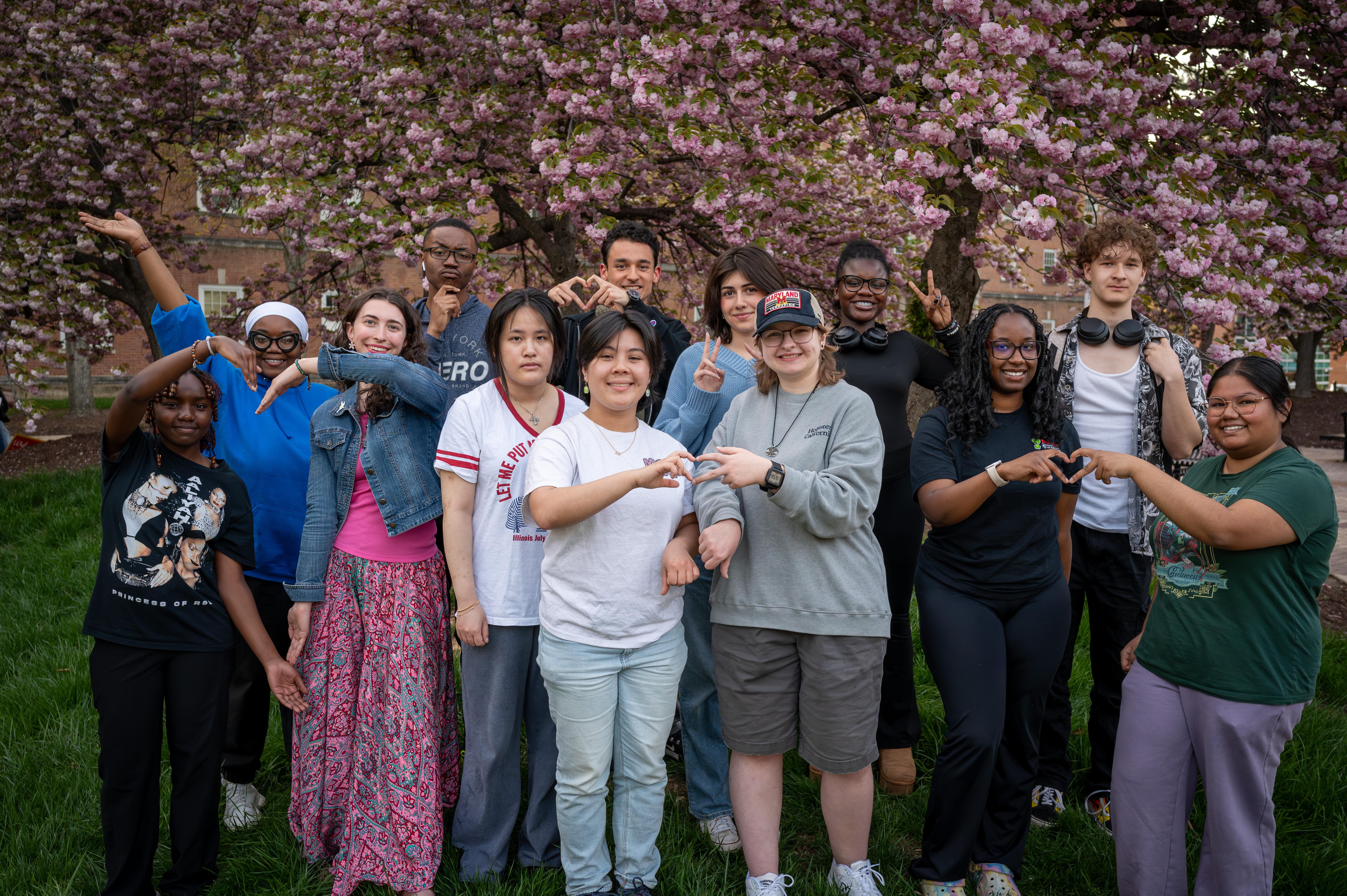
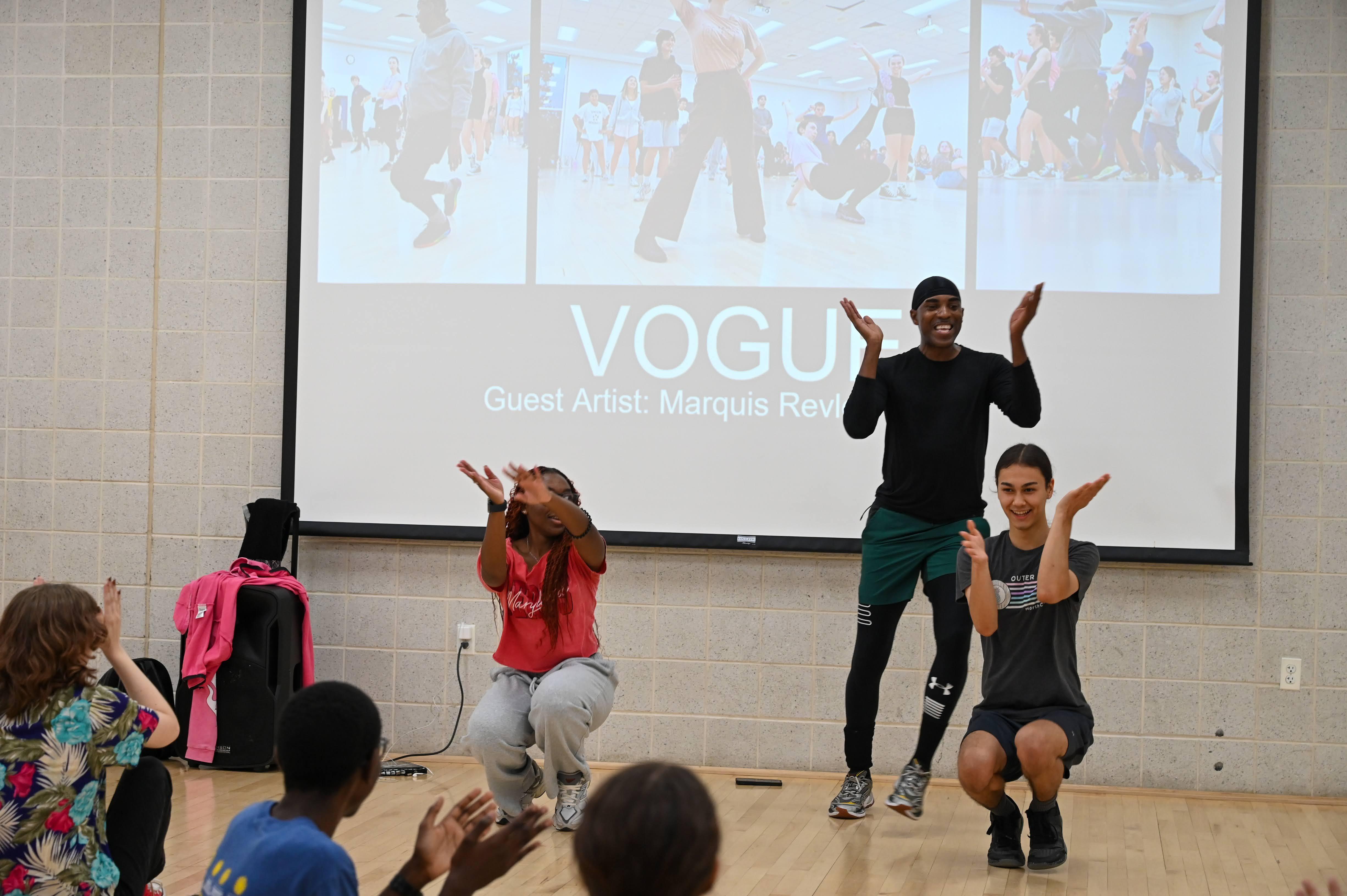
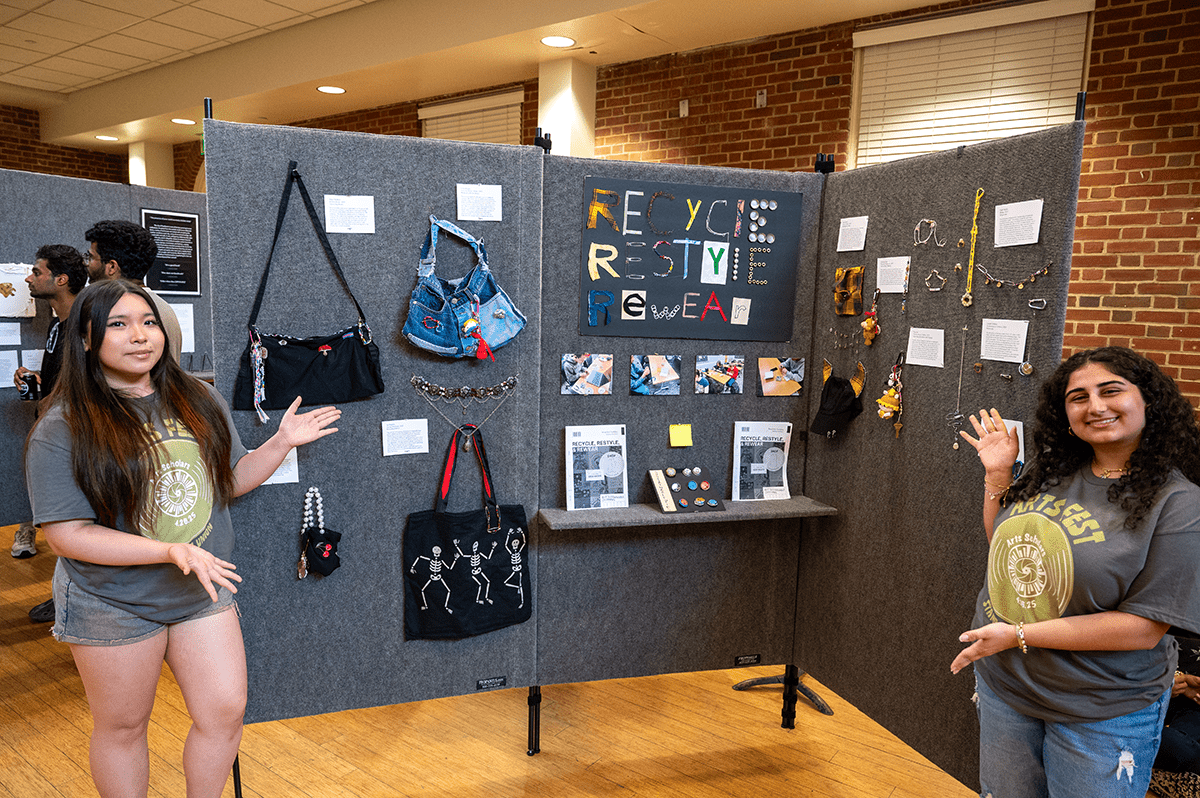
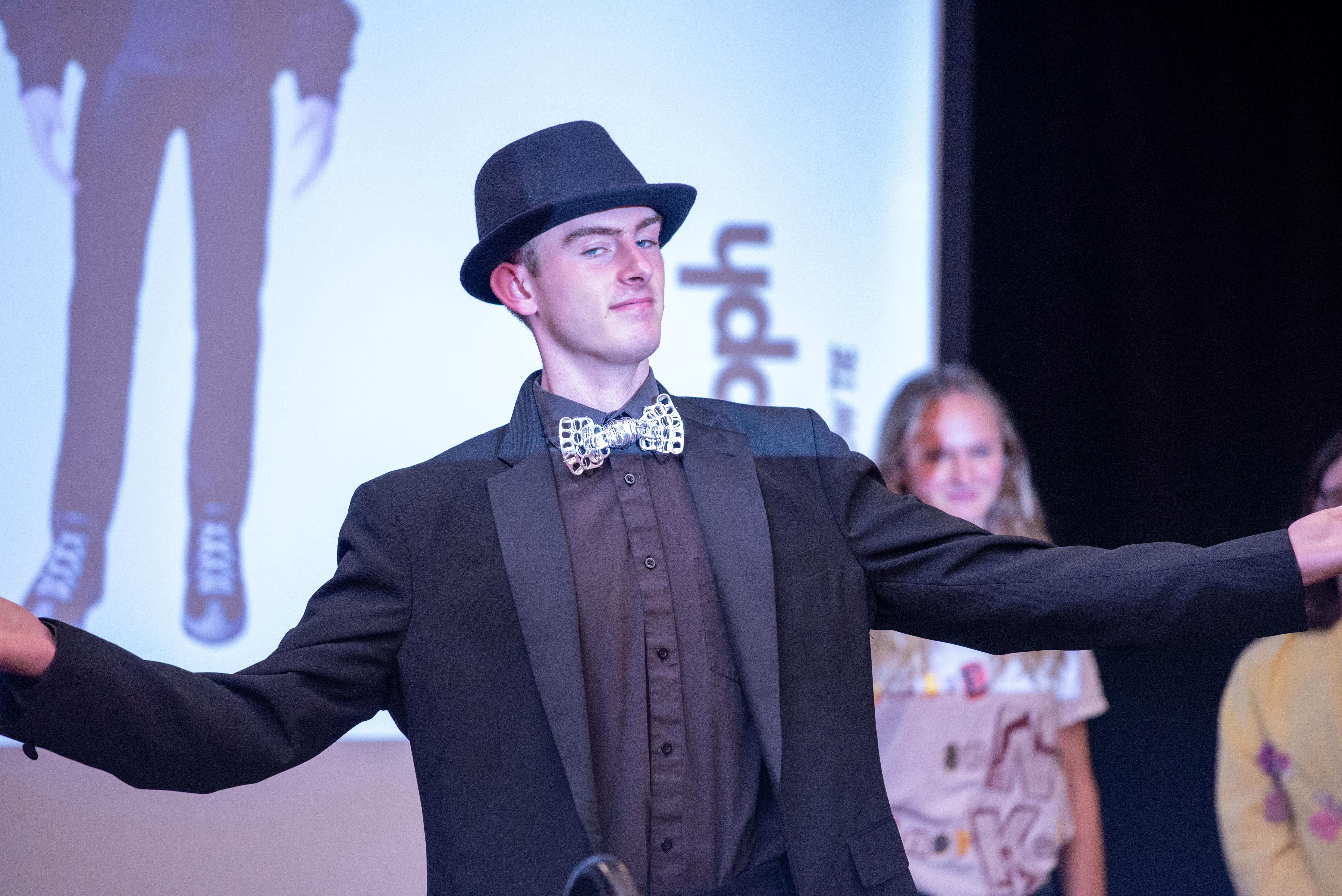
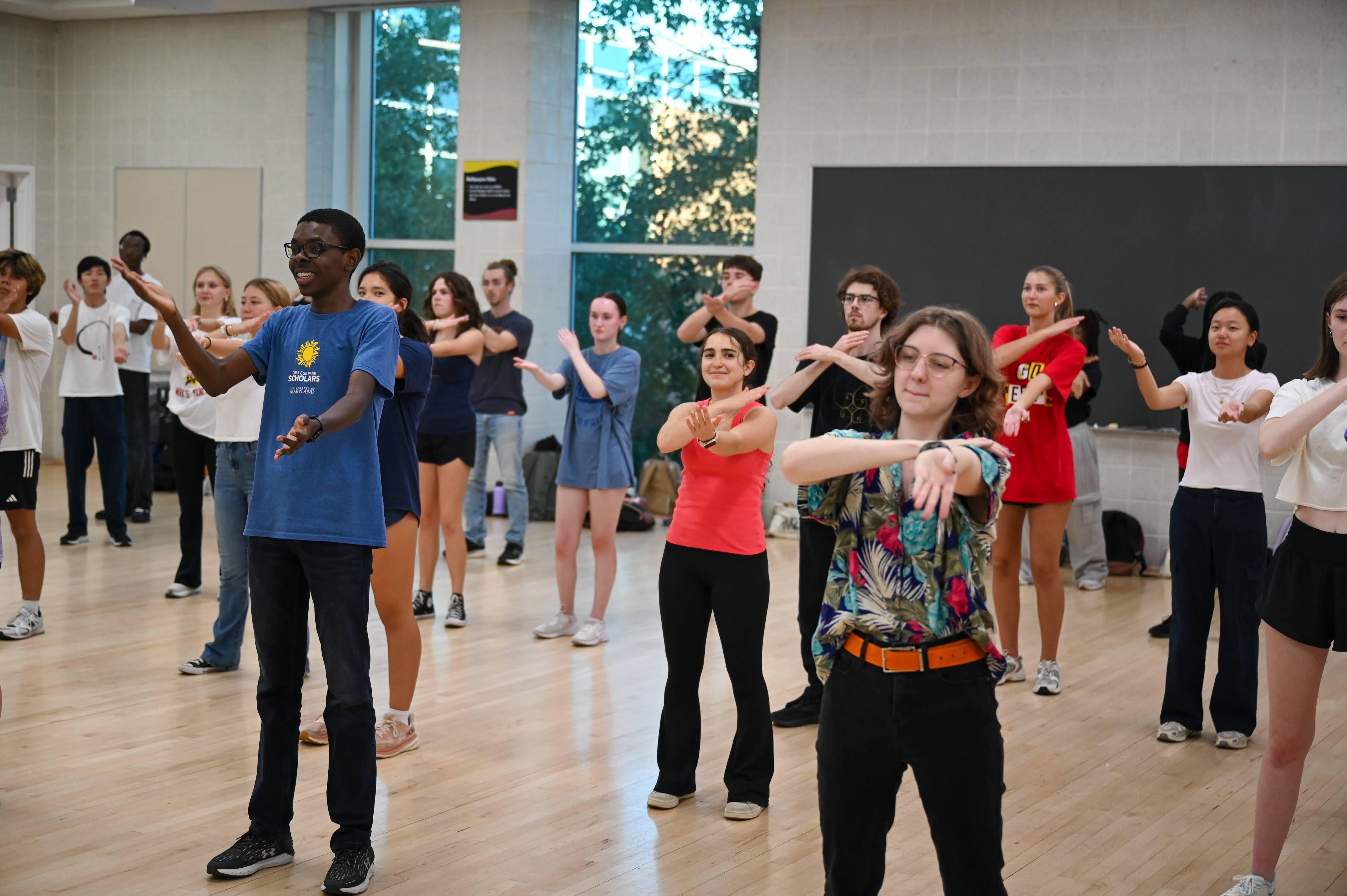
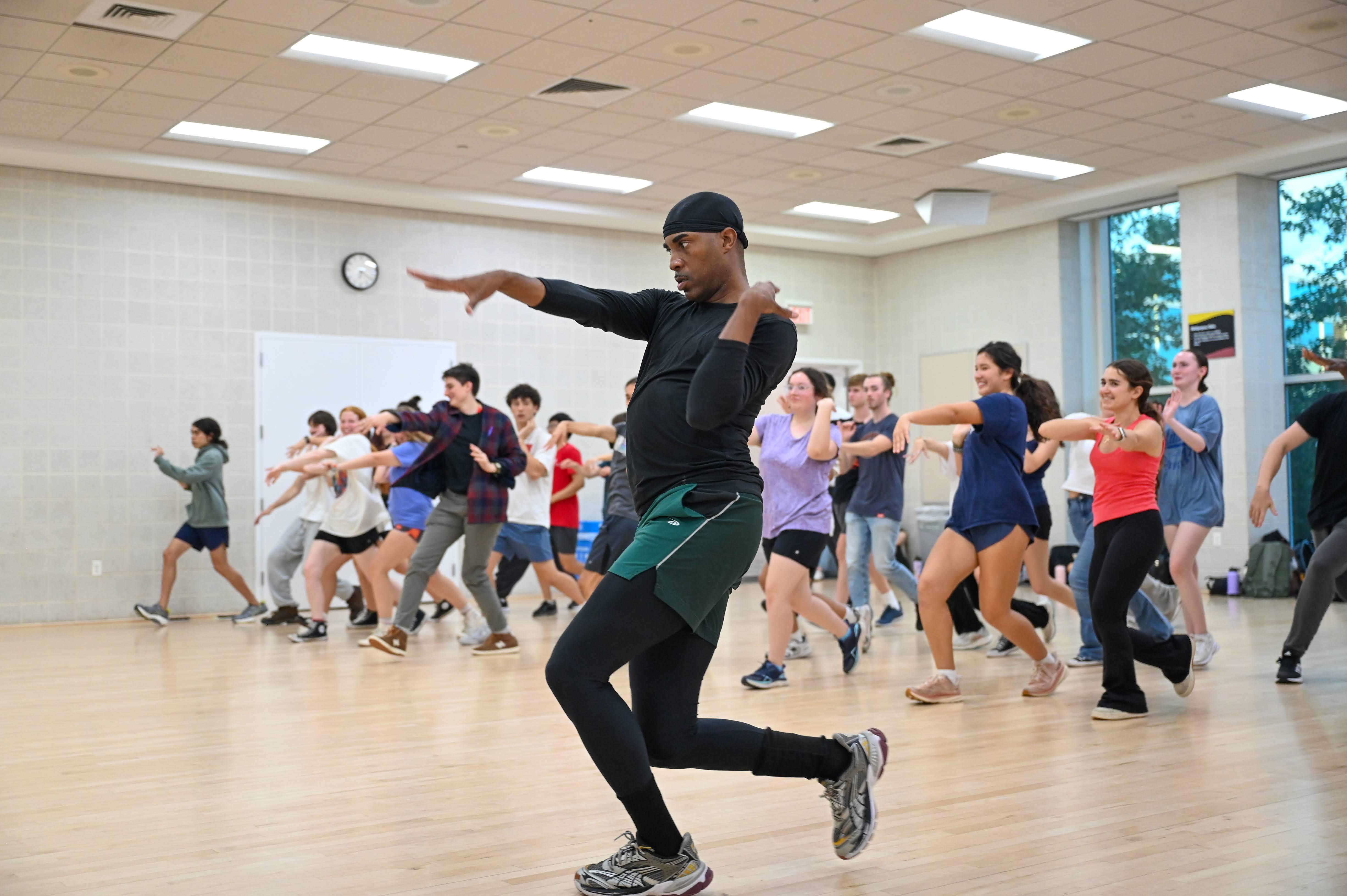
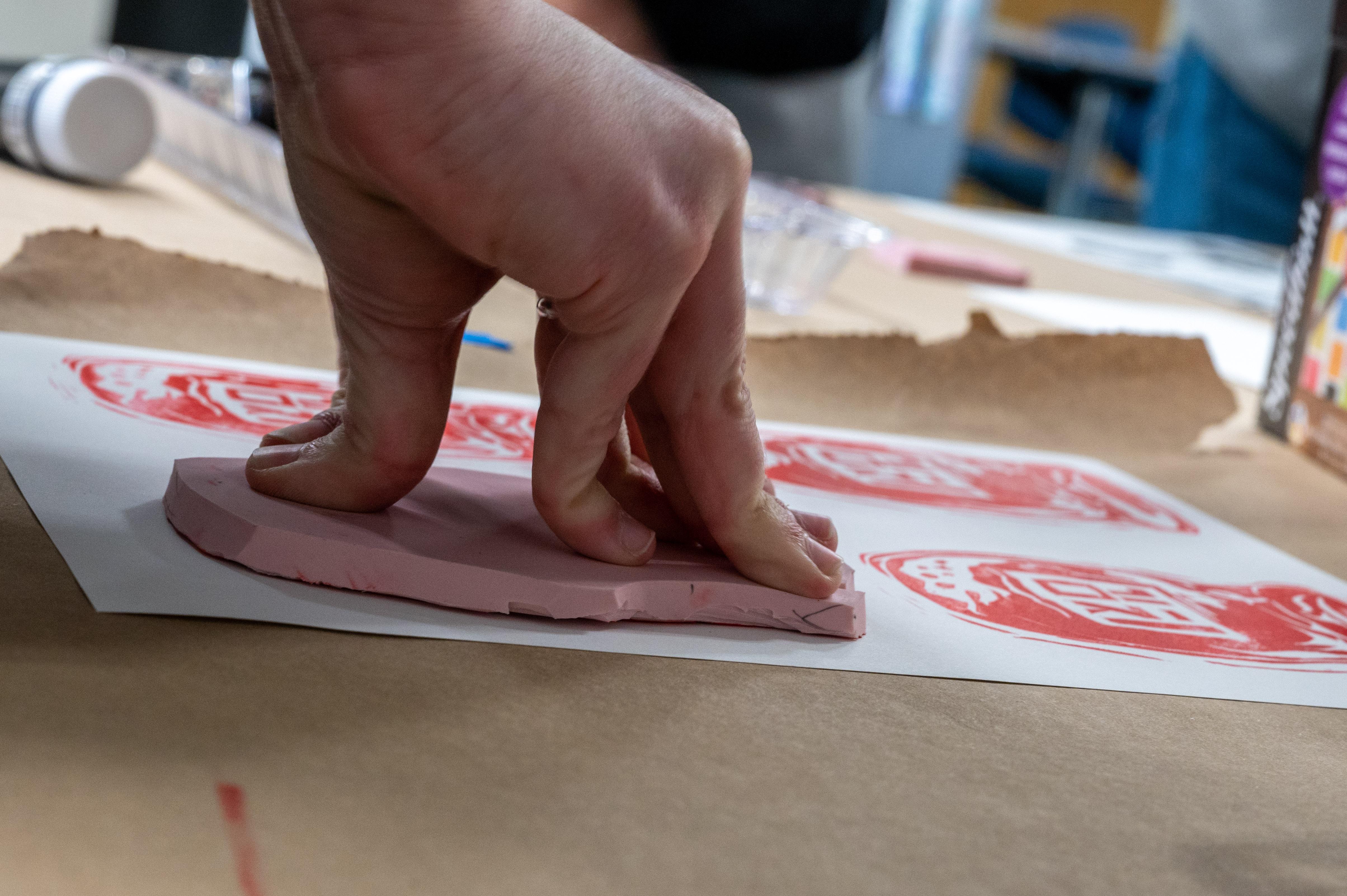

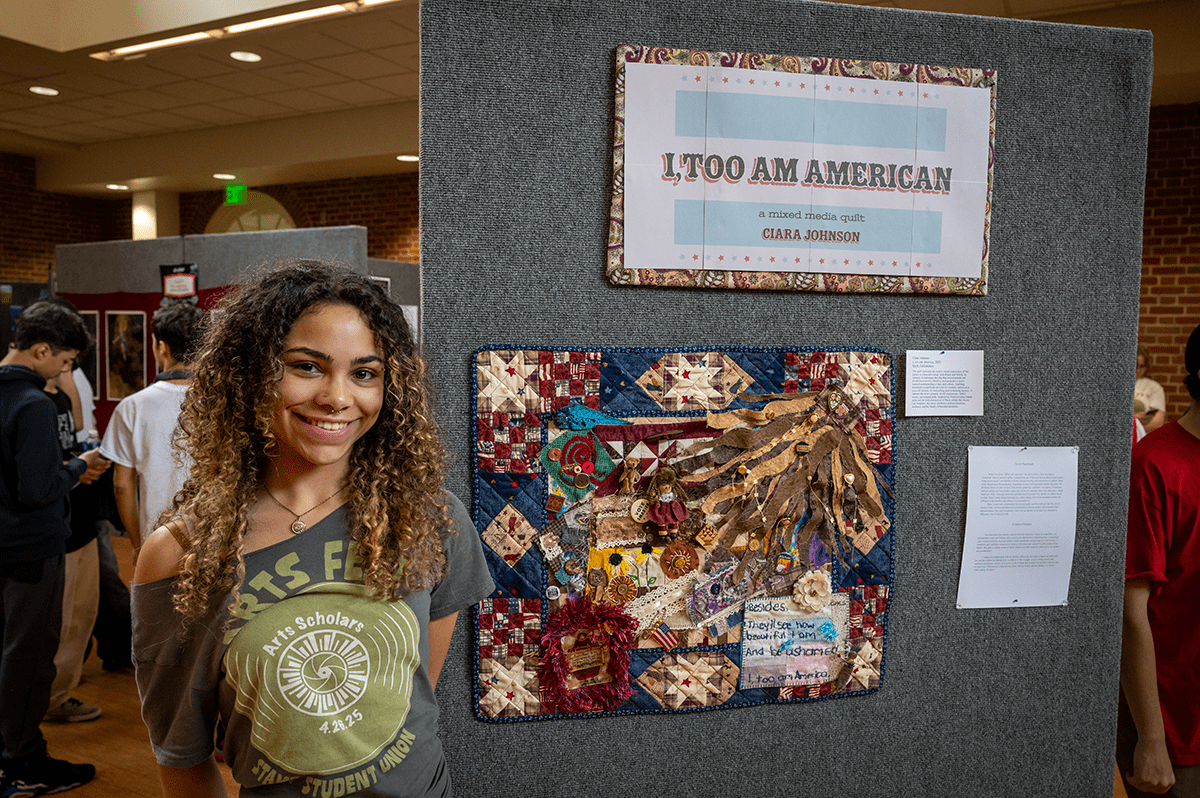
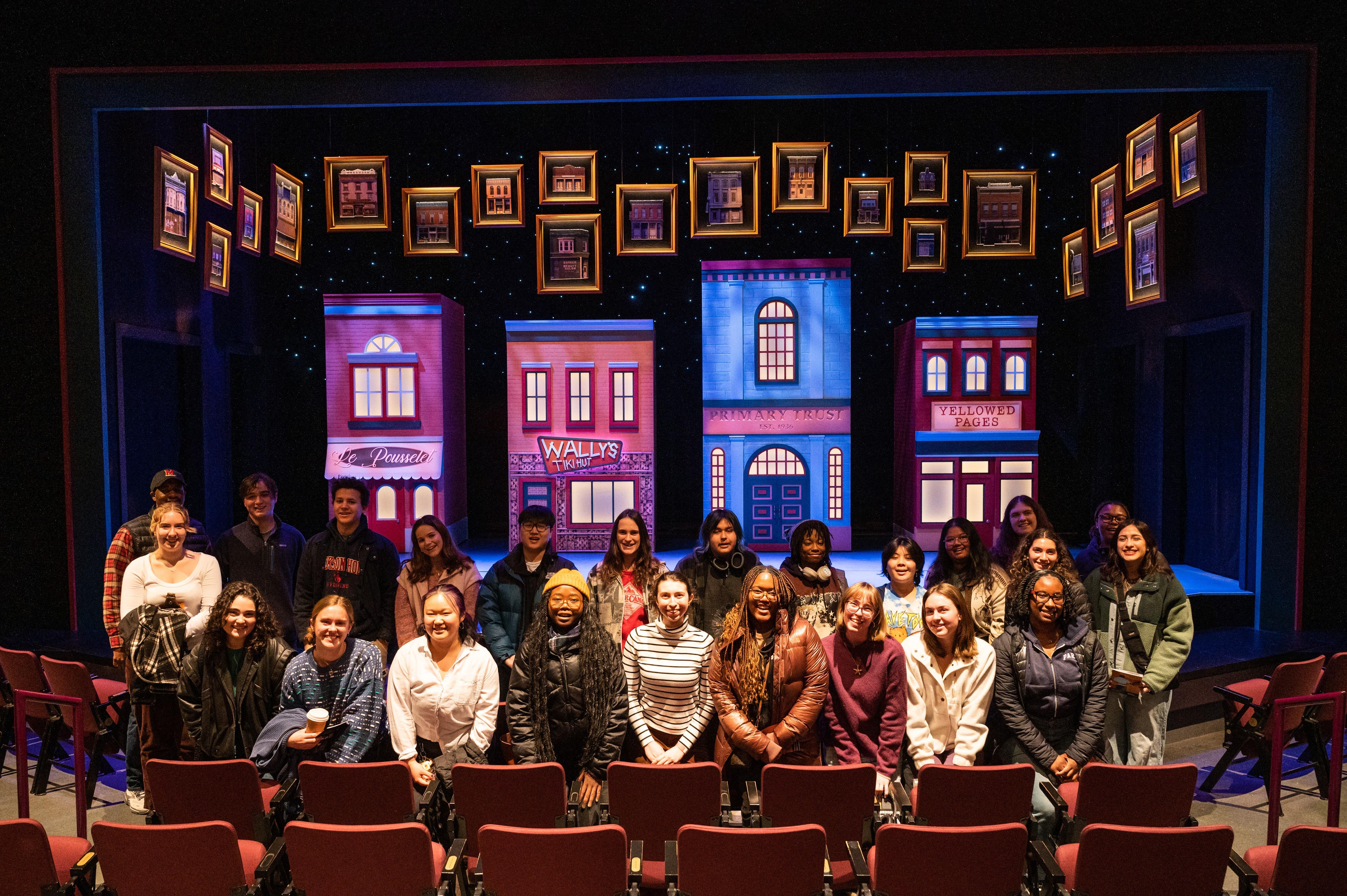
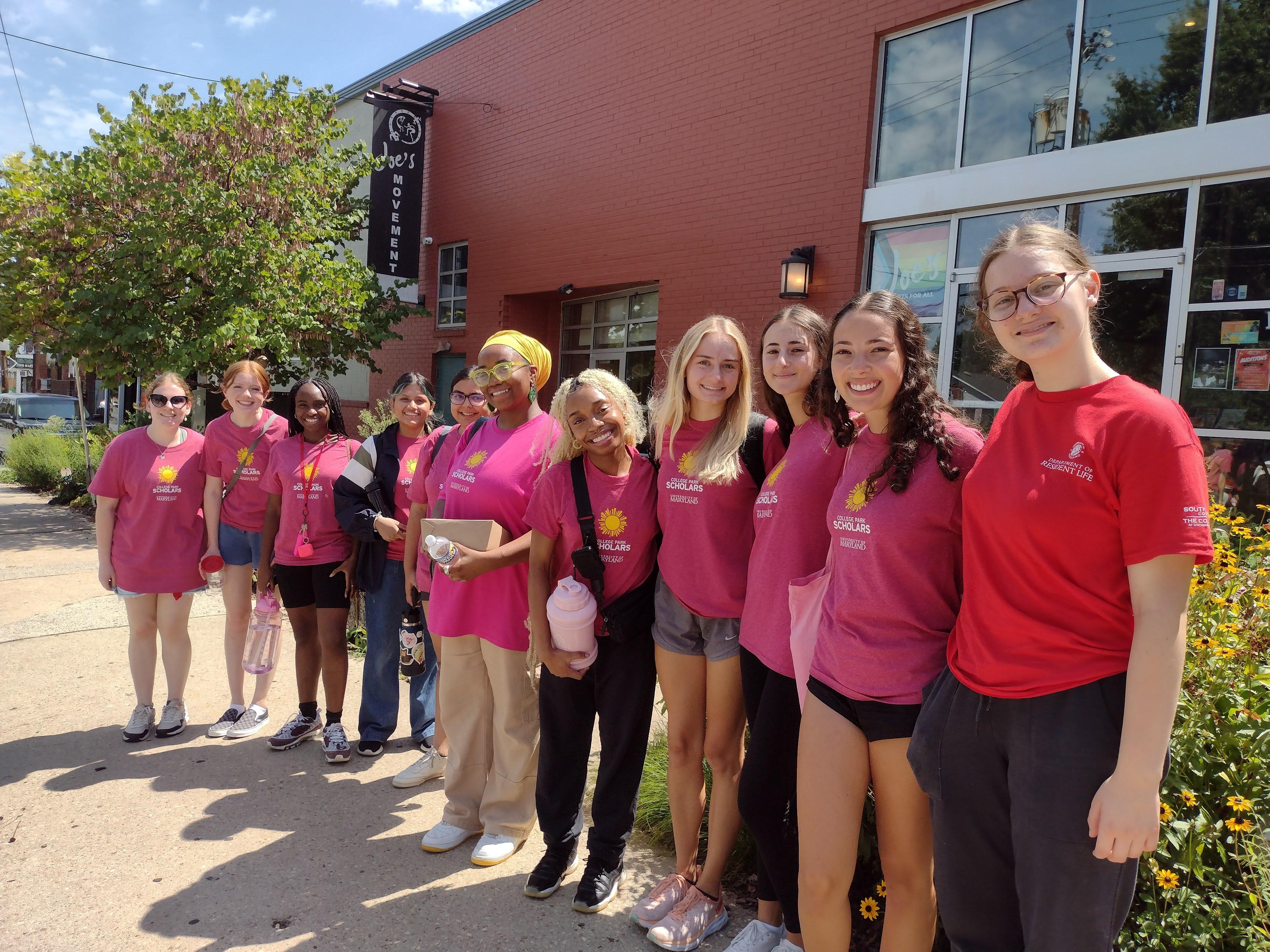
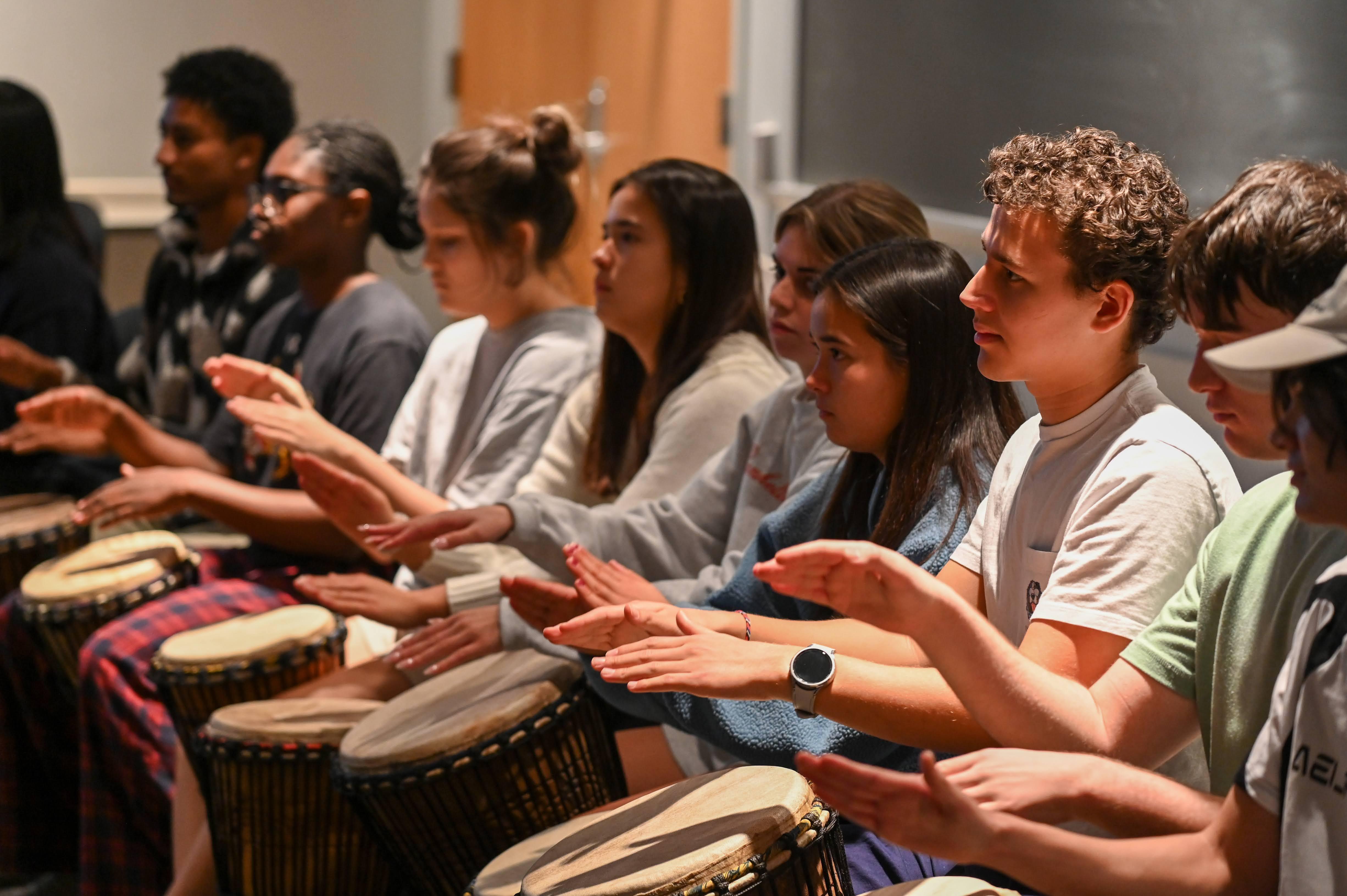
Colloquium and Lecture Topics
Through a mix of lectures, discussions, and guest artist workshops, and experiential projects, students consider (see our most recent “Year in Review” page for photos!):
- Vogue Dancing: How can art be used as a tool for resilience, resistance, and social chance?
- Artistic Consumption: How is artistic “taste” shaped by our social identities?
- Creative Research: How can empirical research, rapid iteration, and prototype testing improve your creative process?
- Spoken Word Improv: How can the principles of improv inform and improve our everyday lives?
- Campus Galleries: How can slow-looking help us combat the pressures of a frenzied world?
- West African Drumming: How can music build community, tell stories, and promote intercultural understanding?
I have been challenged to think differently, work cooperatively, embrace creativity and, most importantly, go beyond the limits I have set for myself. Because of this program, I can confidently say I feel infinitely more prepared for the “real world,” and for that confidence and growth, I could never be more grateful.
Other Learning Opportunities
Outside the classroom, Arts Scholars have many other opportunities….
Experience the arts first hand:
- Field trips: Each semester students visit locations such as The Clarice Performing Arts Center, the Everyman Theatre in Baltimore, the National Gallery of Art, and the National Museum of African American History and Culture.
- Maker Mixer: Teaching Assistant led community building events that include crafting, visiting campus galleries and maker-spaces, and attending shows on campus.
Creative Capstones:
- Sophomores develop capstone projects - identifying a social issue of significance to them to be explored through an artistic medium of their choosing. The capstone project is about your unique view of the world and what you want your audience to understand or experience as a result.
- All capstones are displayed at ArtsFest- an annual exhibition of student work in the Stamp Student Union.
Leadership opportunities:
- Arts Media Team: Social Media & Newsletter assistants work with Arts Faculty to research, draft, and publish the weekly newsletters and Instagram posts to the community.
- Arts Teaching Assistants: Arts Scholars graduates build their skills and experience leading discussions, developing events, and serving as mentors to current students.
Curriculum Overview
Over the two-year program experience (four semesters), students will complete up to 6 credits of supporting courses that will count toward your Arts Scholars citation. In most cases, these will also fulfill General Education requirements. Note that your Scholars courses—colloquiums, capstone practicum and supporting courses—will generally be in addition to any courses you take to satisfy major requirements.
The following represents a typical two-year curriculum, but individual schedules may vary. Details about courses and requirements can be found on the Arts Citation Checklist.
| SEMESTER | COURSE | CREDITS |
|---|---|---|
| Semester 1 | CPSA 100: Colloquium I | 1 credit |
| Semester 2 | CPSA 101: Colloquium II | 1 credit |
| Semester 3 | CPSA 200: Colloquium III | 1 credit |
| Semester 4 | CPSA 201: Colloquium IV | 1 credits |
| CPSA 240: Service Learning; or CPSA 250: Research (DSSP); or CPSA 260: Peer Teaching (DSSP) |
2 credits 2 credits 2 credits |
|
| Semester 1, 2, 3, or 4 | Supporting Course (var. Gen Ed) Supporting Course (var. Gen Ed) Supporting Course (DVUP or DVCC) |
3 credits 3 credits 1-3 credits |
Sponsoring College
Faculty
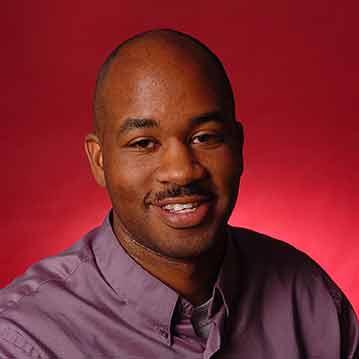
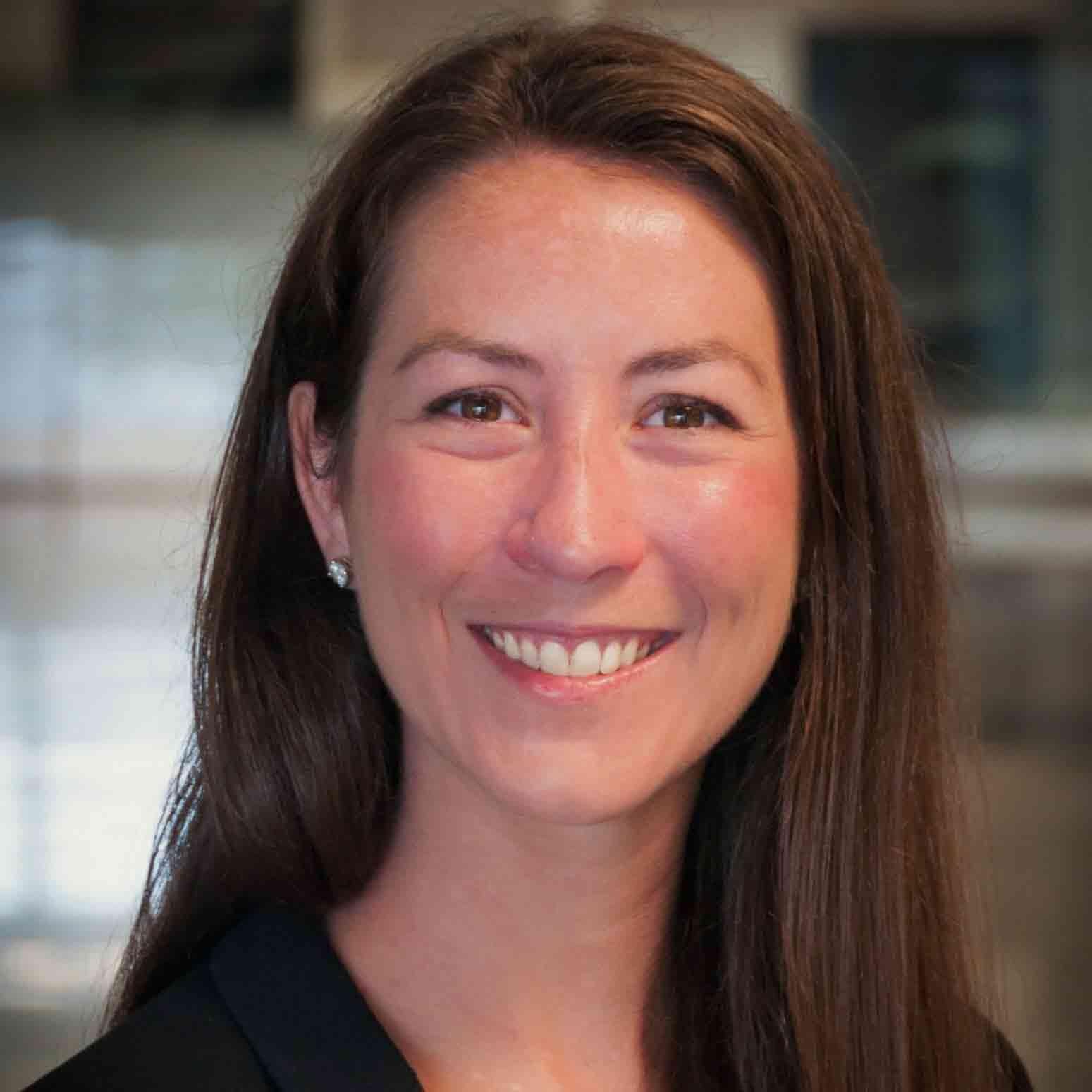
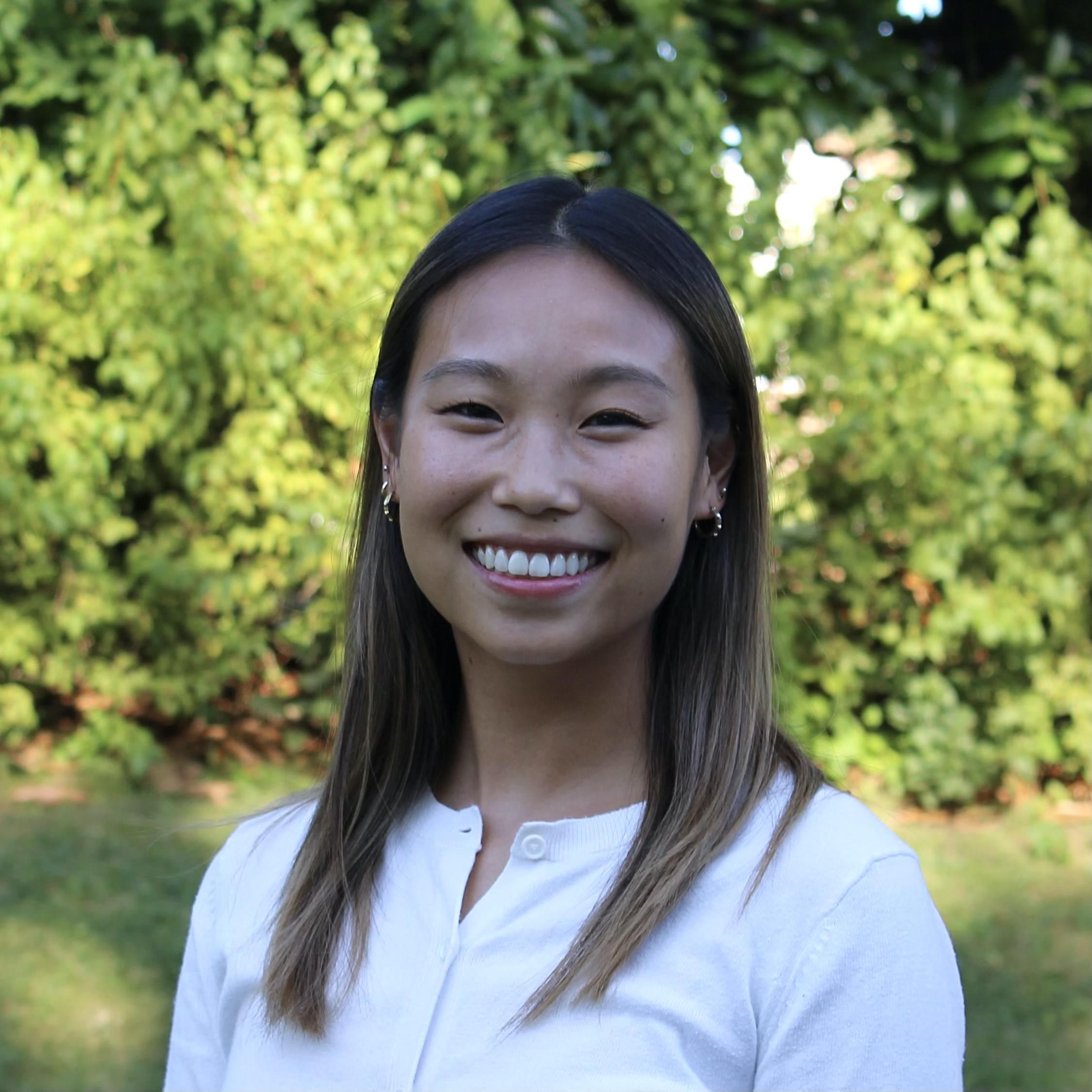
The Diamondback: UMD students' dance workshop highlights Japanese Butoh style, May 2022
Arts News
School of Public Health to Host Showing of PBS Public Health Documentary
The University of Maryland School of Public Health will kick off its Global Health Film Series on Wednesday with a screening of a film about the U.S. Public Health Service Commissioned Corps that features the school’s dean, Boris D. Lushniak, a member of the uniformed service branch for 27 years. In partnership with the College Park Scholars’ Global Public Health program and Public Health Beyond Borders, the one-hour PBS documentary “Invisible Corps” will be shown at 7 p.m. in the Stamp Student Union Grand Ballroom.
College Park Scholars Announces New Coordinator for Media, Self and Society Program
College Park, MD – October 9, 2023 – College Park Scholars, a nationally acclaimed living learning program at the University of Maryland, College Park, is pleased to announce the appointment of Dr. Carole Lee as the new program coordinator for the Media, Self and Society (Media Scholars) program. In her new position, Dr. Lee will promote student engagement and success by managing co-curricular and experiential learning opportunities. She will also play an important role in teaching, student support, and curriculum development for the Media Scholars program.
More Than Words
Global and Public Health Scholar Kelly Biglin was recently interviewed for a Maryland Today article highlighting the benefits of enrolling in a Spanish for Health Professions class at UMD.
New Feller Research Professor to Advance Research on Activism by Marginalized Youths
Stacy Kosko, an Associate Research Professor in the Department of Government and Politics (GVPT) and the Director of the College Park Scholars International Studies program, has been named the next Joel J. Feller Research Professor—an award that has supported professional track faculty in GVPT since 2015.
'Cheese' The Day
The following article originally appeared in Maryland Today: As a kid, Kara McGrath ’13 had to have her “pocket cheese”—string cheese she shoved, at her mother’s dismay, into every jacket and pant so she could have it on the go. In college, she blew her budget on fancy fromage during grocery runs with roommates. And when she got married in 2018, she served her guests a flowery, four-tiered cake made not from red velvet or buttercream, but wheels of Manchego, blue cheese and Harbison.
Invasive plants threating DC parks
University of Maryland students partnered up with Montgomery Parks staff and volunteers for an important day of pulling weeds.

